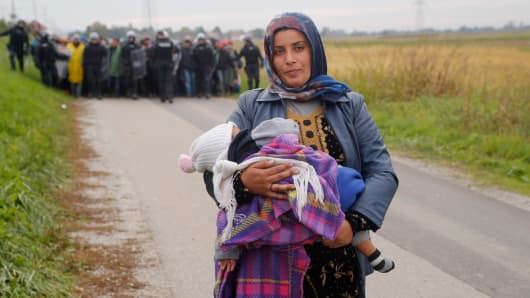On the Turkish border with Syria, in a town called Reyhanli, there's a refugee mom with four children, facing an even harsher world this week after the terrorist attacks in Paris. Before, she was seeking an avenue to a better life in the West; now, according to Lina Sergie Attar, CEO of the Chicago-based Karam Foundation, Razan questions whether she and her children will be safe or welcome there.
The family fled Damascus after their father was executed for participating in a government protest. The youngest child, Ibrahim, saw the execution in front of his own eyes. Despite the tragedy, the children remain hopeful. The oldest daughter, Sarah, wants to study English literature. The oldest son, Sulieman, taught himself graphic design from YouTube and is already working.
"They're rock-star kids," said Attar, in a Skype call from Istanbul after a visit to Karam's classrooms in Reyhanli. The foundation focuses on education and sustainable development for Syrian refugees. "How can people deny a family like that a better chance?"







